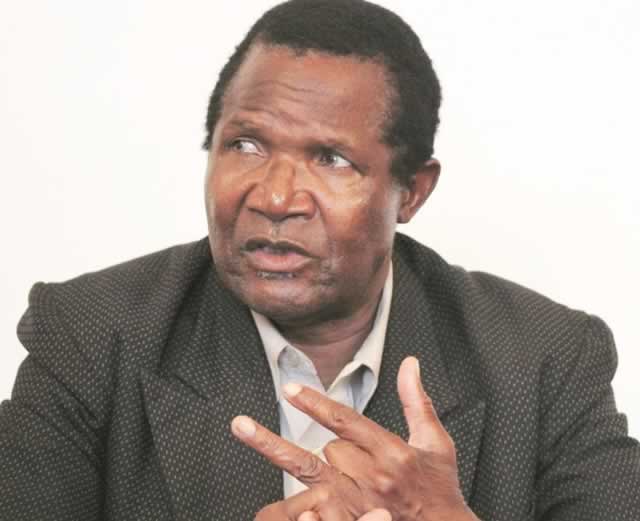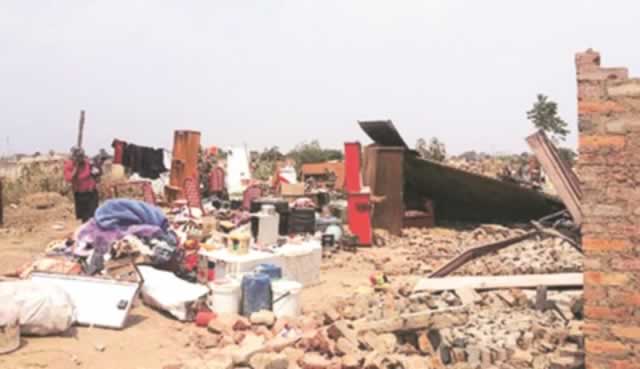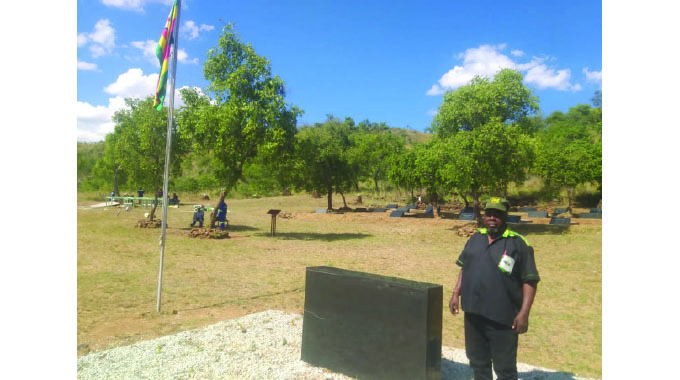Unsung heroes of Zim women’s rights

The Arena Hildegarde
IN November last year I bought a second-hand book, “Profiles of Rhodesia’s Women”, compiled and published in 1976 by the National Federation of Business and Professional Women of Rhodesia in commemoration of International Women’s Year 1975.
As I flipped through the book, I was attracted by the foreword, written by Ian Smith’s wife Janet, where she claims: “One of the most significant features of this publication is the large number of African women who are now able and willing to play their part in the social, economic, spiritual and cultural development of the community. This can only lead to greater happiness for all (own emphasis) Rhodesians.”
Janet Smith’s superfluous remarks to mark the inauguration of such a historical event for women internationally were made under the shadow of the assassination of ZANU chairman Cde Herbert Chitepo in the Zambian capital Lusaka on March 8, 1975.
The first chapter, “Frontline Women”, also gives the false impression that the handbook is celebrating Zimbabwean women fighting in the liberation struggle.
However, it is saluting wives of Rhodesian soldiers fighting for the soul of imperial hegemony, women they claim, “remembered that an army marches on its stomach, and have set up canteens to give hot meals to soldiers in transit”.
Reading such stuff, you realise that we have not even started to celebrate our women combatants from both ZANLA and ZIPRA, including the war collaborators and restrictees. We don’t know them, neither do we really appreciate their contributions.
In a wide-ranging interview by Munyaradzi Huni and Tendai Manzvanzvike late last year, with Cde Joel Samuel Siyangaphi Muzhamba, whose Chimurenga name was Joseph Khumalo, who was among the first group of cadres to undergo military training in Ghana (1964-1965), and was also one of the two ZANLA commanders to train the first 72 women freedom fighters in 1974, it was underscored that it was about time that women who participated in the liberation struggle received due recog- nition.
Cde Khumalo said: “These women made immense contribution, and faced many problems which we all need to understand and appreciate, because they are still suffering.
“With their little education and humble backgrounds, their contribution is well known. Kuti nyika isununguke, and for the revolution to spread all over the country, it was because of their contribution. Most people owe their top positions to these women.
“As ZANLA forces, we had no experience and knowledge that women could also be trained militarily and fight like men. We thought that munhukadzi haazvikwanisi. But we later discovered that some of them were sharp shooters, kutodarika varume. Even mupfungwa umu, paive nevasikanawo vane pfungwa kudarika varume,” he said.
“When we first recruited the girls (1972), it was an eye-opener.
“That was after we had realised that in other countries like China and Mozambique, women participated immensely in the liberation of their countries. If women had not participated, dai takasvika iye zvino hondo yedu ichiriko. (We could still be fighting Rhodesians.)
“Frelimo also had many trained women fighters, active on the front, who also transported military materiél, mobilised and gave political orientation to the masses, etc. We did not have all that. Therefore, the advantage we had by having women cadres was that when they had been trained, they provided security for our materiél, instead of having additional male comrades providing security.
“Experiences of other women fighters motivated them and they realised that they had to play their part. Their first role was to carry materiél. Because of these girls (now women) who carried military materiél, and also politicised new recruits and the masses, the landscape of the battleground became a place where all took part,” he added.
The transportation of materiél was critical, considering that the girls who did this were initially in their teens. They walked long distances, were exposed to various dangers, including Portuguese and Rhodesian enemy forces.
This was also because during the early stages, liberation movements did not have the means to transport their military materiél. They could also not afford to lose to the enemy, the little military equipment, donated by friendly nations.
As Cde Khumalo continued to pay tribute to the women freedom fighters, he said: “I worked with these girls, transporting materiél. If she encountered enemy forces on the way, it was her responsibility to defend that materiél. Apedza hondo, kana apona ondotakura makasha ake kumusana, napamusoro, kuti andosvika paanofanira kundo- svika.
“You know that our culture looked down upon women, and did not think it appropriate that they can handle firearms. But it was an advantage for them to realise that as women they had the power to handle guns and fight enemy forces . . . Saka zvakazoita kuti vapinde muzvigaro kusvika vave member dzeGeneral Staff. Vamwe vakasvika vakapinda muCentral Committee,” he said.
“Now there is a quota system for them in key decision-making positions. Women are also hard workers – otherwise vanotosevenza kupinda varume. Thus women did a marvellous job, which was the genesis of women’s rights. These rights today are a result of these women war veterans who committed themselves to fight in the liberation struggle, to free themselves from the enemy and the patriarchal system.”
Below are testimonials from some of the pioneer women freedom fighters regarding the transportation of materiél, which led to the opening up of the northeastern region (Mashonaland province).
Cde Susan Rutanhire
Our major responsibility before we went for training was to transport materiél, as our male counterparts were undergoing military training.
We transported the materiél from Chifombo Military Camp along the border with Zambia and Mozambique, to the Zambezi River for onward transmission to the war front. It took us two days to walk from Chifombo to the Zambezi.
During the first days, we walked barefooted. Ukaenda wakapfeka matennis (shoes), kuti ufambe kundosvika ikoko, mese umu (pointing to her feet), would be blistered, and we had to apply mealie-meal on those blisters. We ended up carrying mealie-meal, over and above our food rations. This was in addition to the materiél and the guns to repel enemy fire.
This was one of the most important tasks we performed, rokuti vakadzi mosara muchitakura materiél muchiendesa ikoko kuZambezi, kuitira kuti pavanezenge vave kuuya vakomana (freedom fighters), zvombo zvinenge zvawanda. Saka taingoti tikauya tikagara, tikangoita one week tichizorora, tobva taenda. This was a tough job!
Cde Sophia Ngazviitike
We were a group of 12. We took turns to transport materiél. It’s an experience that you don’t normally want to talk about.
They were heavy, but we still carried them because we were proud that we were contributing towards the freedom of our country.
We wanted Zimbabwe to be free. Ndidzo shungu dzatakange tiinadzo. Kwaive kutakura kwokushingirira kwokuti ungaite sei uchida kusunungura nyika.
Cde Georgina Minizhu
I developed sores from walking, but when I healed, ndakaita gamba rokutakura materiél.
Cde Mavis Mhlanga
There were 10 girls when they arrived at Chifombo – Cdes Dadirai, Letwin, Angeline, Angela, Mationesa, Chipo Simboti, Thandiwe. The other girls had already been sent to Lusaka – Cdes Loveness, Tracy Ramerera, Serbia, Ruth, Chimbambaira, Ronia, Nyepudzai and Susan, etc.
During the whole of 1973 our job was to carry materiél. Apa manje ndopakange paane basa, nokuti taitakura materiél kubva nawo paChifombo tichiendesa kuna Zambezi. We would get to the camp, and if we rest for three days, that was quite a lot. We also had male cadres assisting us.
The comrades at the front were never supposed to run out of arms. Takagara tichituta materiél, until other girls started coming. When they came, three of us – Cdes Dadirai, Thandiwe and Spiwe were selected to go and take care (security) of the materiél that had been donated by the People’s Republic of China.
One of the first girls to be recruited in 1972 was Cde Steria Dube. She started carrying materiél from Kakwidze to the Zambezi before they even got to Chifombo.
She said: “We carried boxes of bullets (zvimakasha zvemabara), landmines and hand grenades. Ipapo macomrades vanenge vachitokuudzai kuti, ‘Iri igrenade iri, iyi ikasha iyi, ine mabara; iyi ilandmine inoputitsa motikari.’
“Each person carried a box of bullets, maybe two hand grenades, etc. You had to be content with that because there was little you could do.”
“The most important activity was to carry materiél, and they made countless trips from Chifombo to the Zambezi. When comrades arrived at Chifombo from training, we would be told about their arrival, and they would be part of the entourage as we took the arms to the Zambezi. As they crossed the Zimbabwe River into (Rhodesia) Zimbabwe, then we would be on our way back, for yet another trip.”
Conclusion
This account goes to show how Janet Smith deluded herself and her Rhodesian ilk to think that a “large number of African women are now able and willing to play their part in the social, economic, spiritual and cultural development of the community”.
Her statements came at a time when hundreds of young women were leaving the country for Zambia and Mozambique to join the struggle, while those that remained suffered under Rhodesian oppression and brutality.
It was a bitter pill to swallow for Janet Smith to admit that while the Rhodesian forces’ superior firepower was transported by road and air, young black girls instead sacrificed life and limb as they transported the weapons that dismantled that superior force.
These were the real women who opened opportunities and spaces previously reserved for Janet and her Rhodesian sisters.
These were also the women who ushered in the real women’s rights, and the celebration of a credible International Women’s Day in Zimbabwe, for both military wings ended up with departments of women affairs.
Those departments have seen a sustained struggle to ensure that if women freedom fighters were no different from their male counterparts, despite the myriad challenges faced, then it must even get better in a liberated Zimbabwe.
As the countdown to International Women’s Day starts, it’s time that the nation expressed its gratitude to these women in word and deed. For too long, they have been the unsung heroines of the women’s movement in Zimbabwe.








Comments